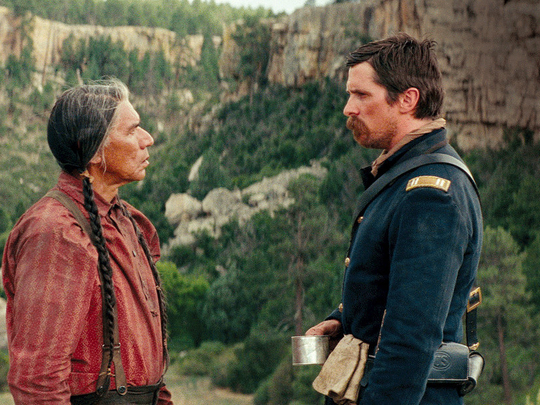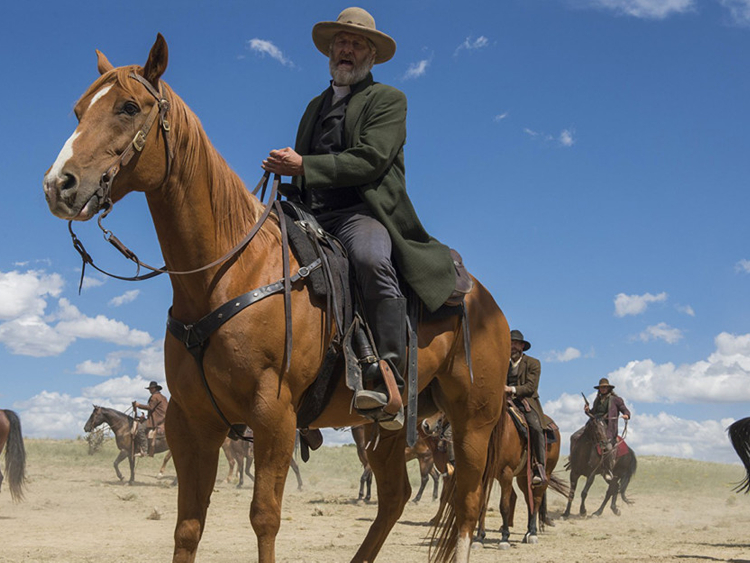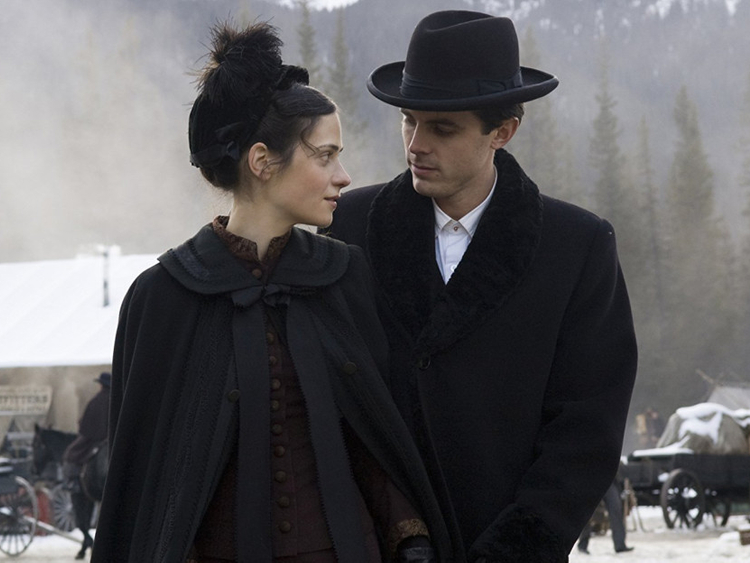
The cowboy is a vital American figure: descended from emigrant knights and samurai, brother to the soldier, forebear to the cop and superhero, he shoulders the great burden of protecting the tenuous law compact that gives shape to society. He performs a vital service that nonetheless estranges him from the very people he’s duty-bound to defend, placeless in his own domain.
As such, he walks the solitary path of the lone wolf, toughening himself to a world that needs him but doesn’t quite want him. With a chin held high and emotions stuffed deep down, he faces the bad guys to win the day, at times a hero and on occasion something coarser. The Western genre’s broadest suggestion is that this is the sacrifice inherent to being a man.
That’s Joseph Blocker, the gruff captain portrayed by Christian Bale in Scott Cooper’s old-style oater Hostiles [which screened in December at the Dubai International Film Festival], to a T. He’s a mean old man and racist to boot, speaking dispassionately about all of the “savages” he slaughtered during his time in Cheyenne territory. He didn’t take too kindly to his latest assignment — escorting an ailing chief (Wes Studi) back to his tribe’s lands so that the man may die in peace — but he knew how to follow orders, and duly gathers a posse for one treacherous trot across the Great Plains. After surviving various hardships together, Blocker and his reluctant companion reached a mutual begrudging respect. Picture the final scene of Heat, but on the frontier.
Somewhere in the mix is Rosalie Quaid (Rosamund Pike), whose family gets gruesomely massacred to set the film off. She sinks into a hysterical paralysis and eventually joins Blocker’s caravan after he discovers her clutching her infant’s corpse in the burnt-out remnants of her home. From there, however, she sort of... tags along. She exchanges some faux-profound dialogue with Blocker about finding comfort in the finality of death, and even gets to brandish a musket in a key moment, but her utility to the story is mostly accessorial. As a member of the common citizenry, she embodies the civility that gives Blocker and Chief Yellow Hawk purpose. Her well-being is the film’s stakes.
A generous critic might call Cooper a classicist for his fidelity to the traditional thematic concerns and dynamics of the Western; those less inclined for lenience could go with “tired.” Though the film includes plenty of shots alluding to John Ford’s game-changer The Searchers, not once does the film apply the moral nuance to its leads that John Wayne brought to his poetically obsolete cow-puncher. Aside from an unmistakably modern choreography of gunfire calling to mind a particularly sophisticated video game cutscene, Cooper has not built on or challenged his genre in the slightest. Set aside the fact that feminine empowerment and complexity has come to define our current moment; this set of masculine characterisations has sat stagnant for so long, it’s merely tired writing.
Consider the recent case of Godless, promoted by Netflix as a handsomely-budgeted Western with an unusual hook. The majority of the series takes place in the settlement of La Belle, a one-time mining town now made up almost entirely of women following a work accident that claims most of the men’s lives. Hopeful viewers braced for a thought experiment along gender lines, a trial to determine whether women could assume male positions of power without accepting the corrosive violence that goes along with them, but it was more of the same-old in practice. The series set up the played-out conflict between rival outlaws Jack O’Connell and Jeff Bridges as the core of the show, leaving viewers and critics alike feeling cheated.
Contrast that with Andrew Dominik’s exemplary 2007 film The Assassination of Jesse James by the Coward Robert Ford, a mouthful with something to say. Dominik freely redesigned real-life personalities to fit a story about the birth of American celebrity-worship and disillusionment, casting Brad Pitt as a paranoid James warped by his own public profile and Casey Affleck as his number one super-fan gradually losing faith in his idol. Dominik examines the frailty of men, and the extremes to which they’re willing to go in order to hold onto whatever scraps of power they have left. He evinces a modern understanding of systems of male power and how they ultimately lay waste to everyone involved, even the top dogs.
God willing, the Western shall never fully die out, even if it has to go the way of the swords-and-sandals epic into novelty niche territory. But the genre has to take cues from its more mature entries instead of sliding back into macho escapism if it’s going to stand any chance of remaining relevant, or simply effective as drama. So many films pace back through the steps of how the West was won, but the question of why we took it upon ourselves to fight so damn hard has a more complicated answer.














